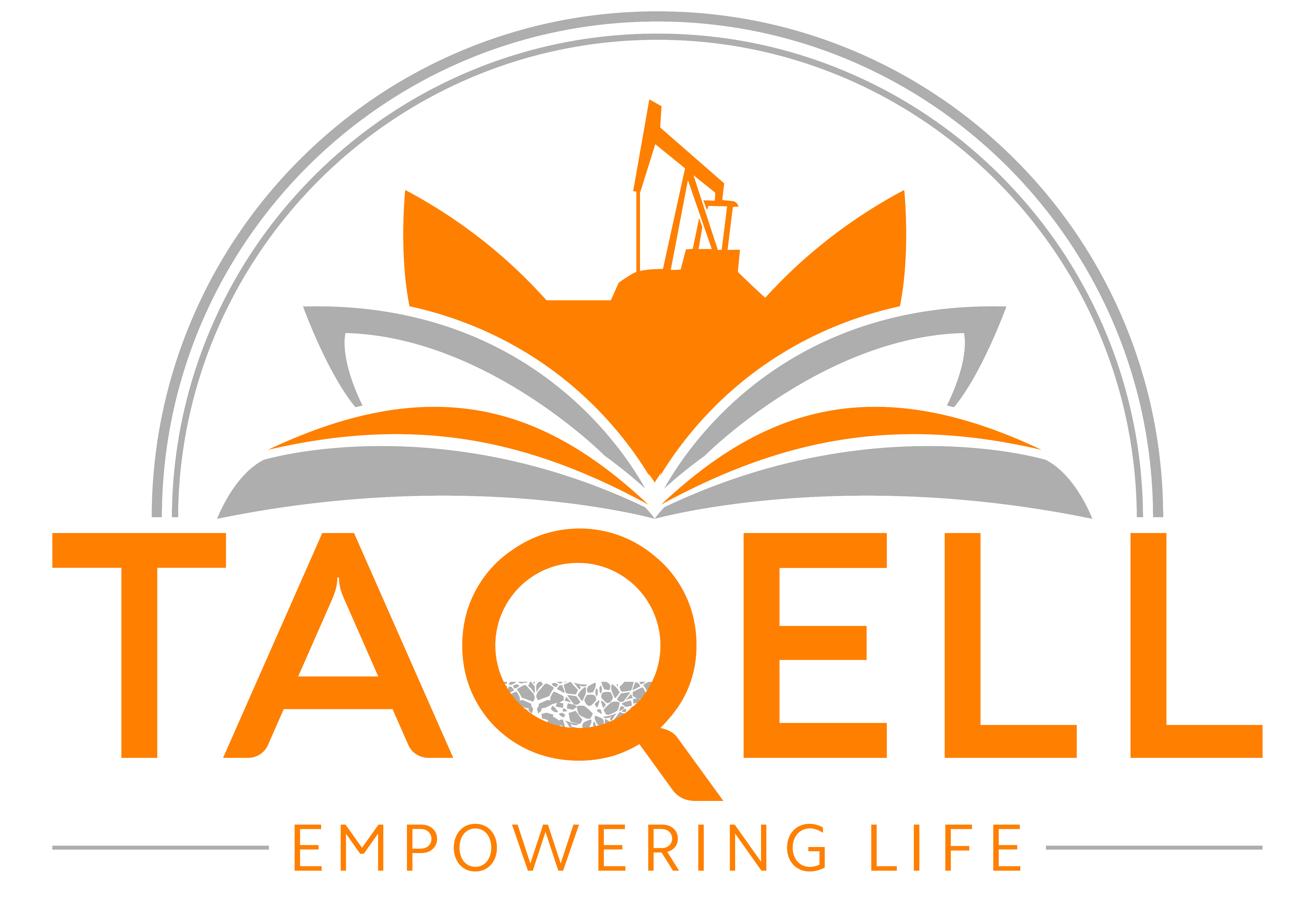Course Overview
The Offshore Geotechnical Engineering course at TAQELL is designed to provide participants with an in-depth understanding of the principles and practices of geotechnical engineering in offshore environments. This course covers the precision and importance of offshore geotechnics, laboratory testing specific to offshore conditions, advanced sampling techniques, and real-world case studies.
Course Format
• Online: Flexible and accessible learning from anywhere, suitable for working professionals.
• Offline: Hands-on training with direct access to instructors and field equipment, ideal for those who prefer in-person interaction.
Detailed Course Content
1. Precision & Importance of Offshore Geotechnics
This module emphasizes the critical role of precision in offshore geotechnical investigations and addresses the unique challenges encountered in offshore environments. Key topics include ensuring accurate data collection and analysis to support the design and construction of offshore structures such as platforms, wind turbines, and pipelines. Participants will explore the impact of harsh marine conditions, including waves, currents, and seabed mobility, on geotechnical investigations, and learn strategies for mitigating risks associated with offshore geotechnical failures through advanced planning, thorough investigations, and robust design practices. Additionally, an overview of international standards and regulations governing offshore geotechnical investigations will be provided. By the end of the module, participants will appreciate the importance of precision in offshore geotechnics, understand environmental challenges, and gain knowledge about risk mitigation and regulatory compliance in offshore projects.
2. Offshore Geotechnical Laboratory
This module focuses on specialized laboratory tests crucial for evaluating the geotechnical properties of offshore soils and sediments. Participants will explore techniques for handling and preserving offshore samples to ensure their integrity during laboratory testing. They will gain an understanding of specialized equipment used in offshore geotechnical laboratories, such as triaxial cells, consolidation apparatus, and cyclic loading devices. Detailed procedures will be covered for key geotechnical tests including shear strength tests to determine undrained shear strength of marine sediments, consolidation tests for assessing compressibility and consolidation characteristics of seabed soils, and cyclic loading tests to evaluate soil response under typical offshore cyclic loading conditions. Participants will also learn techniques for analyzing and interpreting laboratory test results, enabling them to apply findings effectively in offshore geotechnical design and engineering applications.
3. Offshore CPT, Ground Model & Sampling Techniques
This module delves into advanced in-situ testing methods, ground modeling, and sampling techniques specific to offshore geotechnical investigations. Key topics include detailed procedures for conducting offshore Cone Penetration Tests (CPT), encompassing equipment setup, execution, and data acquisition, along with the analysis of CPT data to determine soil stratigraphy, strength, and other geotechnical properties. Participants will learn techniques for building comprehensive ground models that integrate CPT data, borehole logs, and geophysical survey results, and how these models are applied in the design and analysis of offshore structures. Sampling techniques covered include Piston Coring for obtaining undisturbed sediment samples, Box Coring for collecting large volume samples for detailed analysis, and Vibro-Coring methods used to penetrate dense or stiff sediments. Quality control measures will also be emphasized to ensure the reliability and accuracy of offshore sampling and testing operations. By the end of the module, participants will gain proficiency in performing offshore CPT, constructing ground models, and applying advanced sampling techniques crucial for offshore geotechnical investigations.
4. Case Studies
This module utilizes real-world case studies to exemplify the application of offshore geotechnical principles and techniques across various engineering projects. Key topics include the selection of case studies encompassing successful and challenging ventures such as oil and gas platforms, wind farms, and subsea pipelines. Each case study provides detailed background information on site conditions, project objectives, and engineering challenges encountered. Participants will gain insights into the geotechnical investigations undertaken, methodologies employed, and the resulting key findings. Discussions will extend to the design solutions implemented, construction methodologies adopted, and lessons learned from each project. Additionally, the module will analyze the risk management strategies employed to mitigate geotechnical challenges and ensure the successful execution of projects. By engaging with these case studies, participants will derive practical knowledge of offshore geotechnical principles and techniques, and understand their application in achieving project success and effective risk management.
Learning Outcomes
Upon completing the Offshore Geotechnical Engineering course, participants will be able to:
• Understand the precision and importance of offshore geotechnical investigations.
• Conduct specialized laboratory tests and interpret results for offshore soils and sediments.
• Perform advanced in-situ testing and sampling techniques tailored to offshore environments.
• Develop and utilize comprehensive ground models for offshore projects.
• Learn from real-world case studies to apply best practices and innovative solutions to their projects.
Who Should Attend?
This course is ideal for:
• Geotechnical engineers and technicians.
• Civil engineers involved in offshore projects.
• Marine engineers and offshore construction professionals.
• Project managers and site supervisors in the offshore sector.
• Engineering consultants and planners.
• Students and recent graduates in geotechnical and offshore engineering.
Course Benefits
• Expert Instruction: Learn from experienced offshore geotechnical professionals with extensive field and laboratory experience.
• Hands-on Experience: Gain practical skills through interactive sessions and real-world applications.
• Flexible Learning: Choose between online and offline formats to suit your schedule and learning preferences.
• Comprehensive Curriculum: Cover all major aspects of offshore geotechnical engineering.
• Networking Opportunities: Connect with peers and industry professionals to enhance your professional network.



